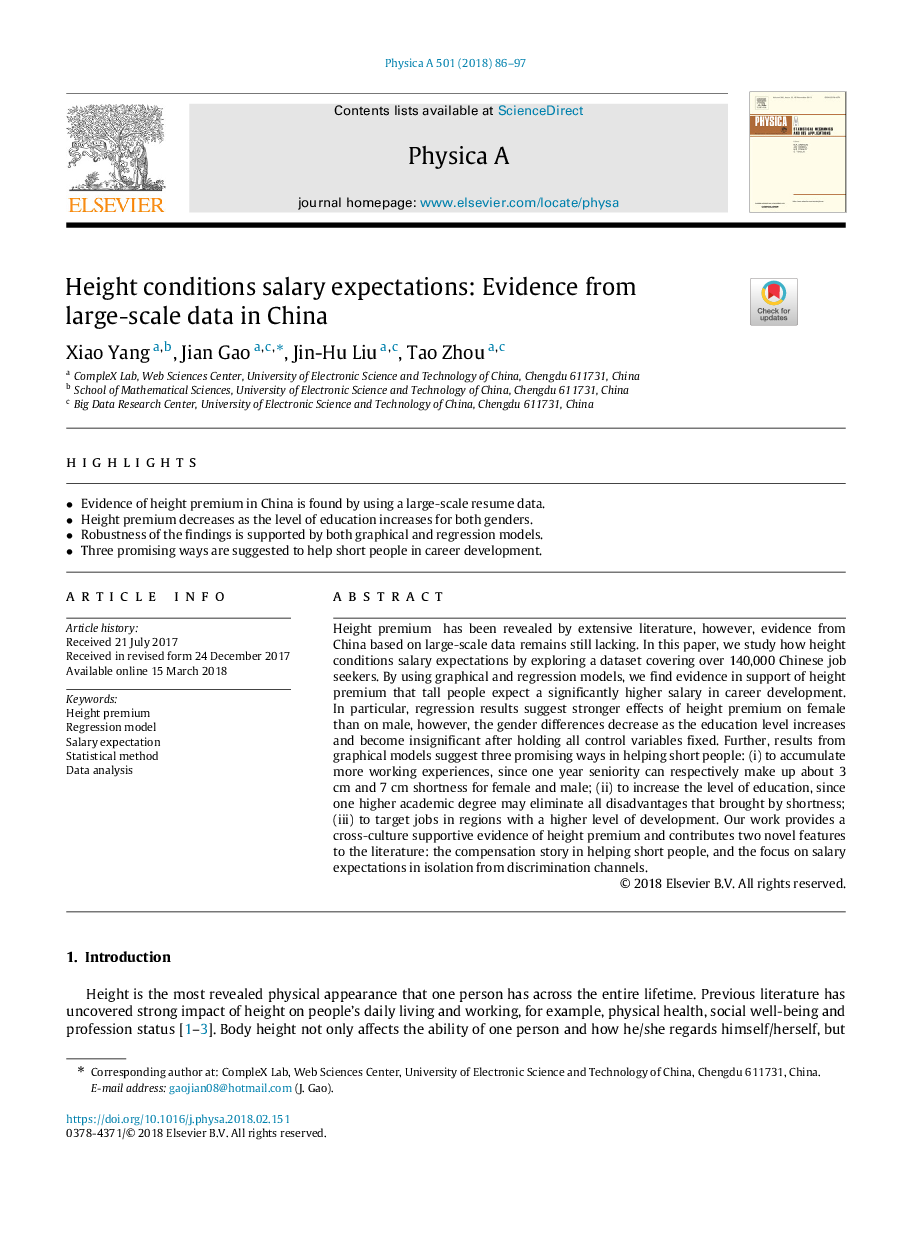ترجمه فارسی عنوان مقاله
شرایط سلامتی انتظارات از دستمزد: شواهد از داده های بزرگ در چین
عنوان انگلیسی
Height conditions salary expectations: Evidence from large-scale data in China
| کد مقاله | سال انتشار | تعداد صفحات مقاله انگلیسی |
|---|---|---|
| 131778 | 2018 | 12 صفحه PDF |
منبع

Publisher : Elsevier - Science Direct (الزویر - ساینس دایرکت)
Journal : Physica A: Statistical Mechanics and its Applications, Volume 501, 1 July 2018, Pages 86-97
ترجمه کلمات کلیدی
حق بیمه بالا مدل رگرسیون، انتظار معاش، روش آماری، تحلیل داده ها،
کلمات کلیدی انگلیسی
Height premium; Regression model; Salary expectation; Statistical method; Data analysis;

